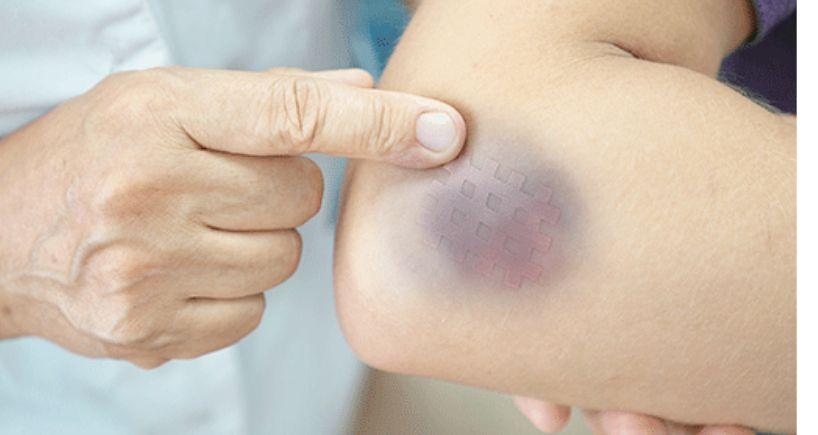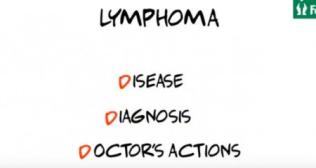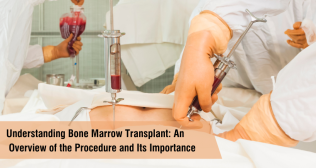
Exploring Purpura: Symptoms, Causes, and Treatment Options
Another medical condition that is related to skin discoloration is known as purpura, this is a situation where one finds purple or red spots on the skin or the mucous membrane as a result of bleeding beneath the skin. These spots come in sizes from punctate spots where they are nearly indistinguishable from the skin surface area to large areas, and they are not due to any injury.
The condition is caused when there is inflammation in the blood vessels under the skin. It can lead to aching joints and sometimes kidney problems and is most common in kids who are under ten years of age.
Symptoms of Purpura
Petechiae: Very small discolored areas that do not exceed 3 millimeters in size.
Ecchymoses: Larger patches that are greater than 1 centimeter in size They are also more serious due to the size.
Other symptoms that may accompany purpura include:
- Bruising: People may develop large bruises for no apparent reason.
- Bleeding: They may have hemothisis, which means they experience bleeding at any time from the gums and nose as well as other mucous membranes.
- Joint Pain: In some circumstances, purpura can be connected with signs of arthralgia and/or swelling of the joints.
- Fatigue: An example of a lumbar disc protrusion symptom that may be apparent is general fatigue and weakness.
Purpura is actually not a disease but rather a sign or, more specifically, a symptom. It is usually important to resolve the basic problem to successfully manage the disease.
Causes of Purpura
Non-Thrombocytopenic Purpura: This type of purpura is where, the absolute count of sample platelets is well alright but there is a problem with a vessel or the way in which clotting is taking place. Causes include:
- Vasculitis: The inflammation of these capillaries
- Scurvy: The lack of vitamin C.
- Amyloidosis: Lesions in the blood vessels.
Thrombocytopenic Purpura: This type of purpura develops in instance where there is hemorrhaging, and the platelet count in the blood is low to enable clot to form. Causes include:
- Idiopathic Thrombocytopenic Purpura (ITP): It is medical condition that arises when the body’s immune system targets a blood product particularly the platelets that the body does not need.
- Thrombotic Thrombocytopenic Purpura (TTP): One rather peculiar sequela that results to formation of blood clots in the smallest capillaries of the body.
- Bone Marrow Disorders: Therefore, diseases like leukemia or aplastic anemia are perfectly known to impact the formation of platelets.
- Medications: The drugs may also alter the appearance of the platelets such as some anticoagulant agents or chemotherapy agents.
Diagnosis of Purpura
A healthcare provider will typically:
- Perform a Physical Examination: Concerning shape, color distribution, and the pattern that the spots form.
- Take a Medical History: Find out any incident of diseases, treatment, or any other ailment that the patient has been receiving.
- Order Blood Tests: CBC to see whether platelets are low, prothrombin time, and partial thromboplastin time to examine blood coagulation and other blood tests to rule for any primary disorders like autoimmune diseases or infections.
Treatment Options for Purpura
What is good about purpura is that it can actually be treated, regardless of its cause, which means that the use of medicines to manage the symptoms associated with the illness can be done.
In this case the treatment plan relieves depending on the type and cause of the condition that is being treating and in this case the condition being treated is purpura.
Non-Thrombocytopenic Purpura
- Treating Underlying Conditions: Like in vasculitis or autoimmune diseases.
- Vitamin C Supplementation
Thrombocytopenic Purpura
- Medications
- Plasma Exchange to decrease the strength of the proteins in the blood as well as to replace the normal plasma.
- Treating Bone Marrow Disorders
- Adjusting Medications
Purpura can be caused due to many health conditions. and not only due to injury. Early detection of the purpura helps in treating and managing the problem better. The idea is to not waste time and act immediately if the symptoms are severe and persist. It is best to follow the advice of the doctor when it comes to diagnose and treatment of the condition to manage it in the best possible way.
Popular Searches :
Hospitals: Cancer Hospital in Delhi | Best Heart Hospital in Delhi | Hospital in Amritsar | Hospital in Ludhiana | Hospitals in Mohali | Hospital in Faridabad | Hospitals in Gurgaon | Best Hospital in Jaipur | Hospitals in Greater Noida | Hospitals in Noida | Best Kidney Hospital in Kolkata | Best Hospital in Kolkata | Hospitals in Rajajinagar Bangalore | Hospitals in Richmond Road Bangalore | Hospitals in Nagarbhavi Bangalore | Hospital in Kalyan West | Hospitals in Mulund | Best Hospital in India | | Cardiology Hospital in India | Best Cancer Hospital in India | Best Cardiology Hospital in India | Best Oncology Hospital In India | Best Cancer Hospital in Delhi | Best Liver Transplant Hospital in India
Doctors: Dr. Rana Patir | Dr. Rajesh Benny | Dr. Rahul Bhargava | Dr. Jayant Arora | Dr. Anoop Misra | Dr. Manu Tiwari | Dr. Praveer Agarwal | Dr. Arup Ratan Dutta | Dr. Meenakshi Ahuja | Dr. Anoop Jhurani | Dr. Shivaji Basu | Dr. Subhash Jangid | Dr. Atul Mathur | Dr. Gurinder Bedi | Dr. Monika Wadhawan | Dr. Debasis Datta | Dr. Shrinivas Narayan | Dr. Praveen Gupta | Dr. Nitin Jha | Dr. Raghu Nagaraj | Dr. Ashok Seth | Dr. Sandeep Vaishya | Dr. Atul Mishra | Dr. Z S Meharwal | Dr. Ajay Bhalla | Dr. Atul Kumar Mittal | Dr. Arvind Kumar Khurana | Dr. Narayan Hulse | Dr. Samir Parikh | Dr. Amit Javed | Dr. Narayan Banerjee | Dr. Bimlesh Dhar Pandey | Dr. Arghya Chattopadhyay | Dr. G.R. Vijay Kumar | Dr Ashok Gupta | Dr. Gourdas Choudhuri | Dr. Sushrut Singh | Dr. N.C. Krishnamani | Dr. Atampreet Singh | Dr. Vivek Jawali | Dr. Sanjeev Gulati | Dr. Amite Pankaj Aggarwal | Dr. Ajay Kaul | Dr. Sunita Varma | Dr. Manoj Kumar Goel | Dr. R Muralidharan | Dr. Sushmita Roychowdhury | Dr. T.S. MAHANT | Dr. UDIPTA RAY | Dr. Aparna Jaswal | Dr. Ravul Jindal | Dr. Savyasachi Saxena | Dr. Ajay Kumar Kriplani | Dr. Nitesh Rohatgi | Dr. Anupam Jindal |
Specialties: Heart Lung Transplant | Orthopedic | Cardiology Interventional | Obstetrics & Gynaecology | Onco Radiation | Neurosurgery | Interventional Cardiology | Gastroenterologist in Jaipur | Neuro Physician | Gynecologist in Kolkata | Best Neurologist in India | Liver Transfer



















